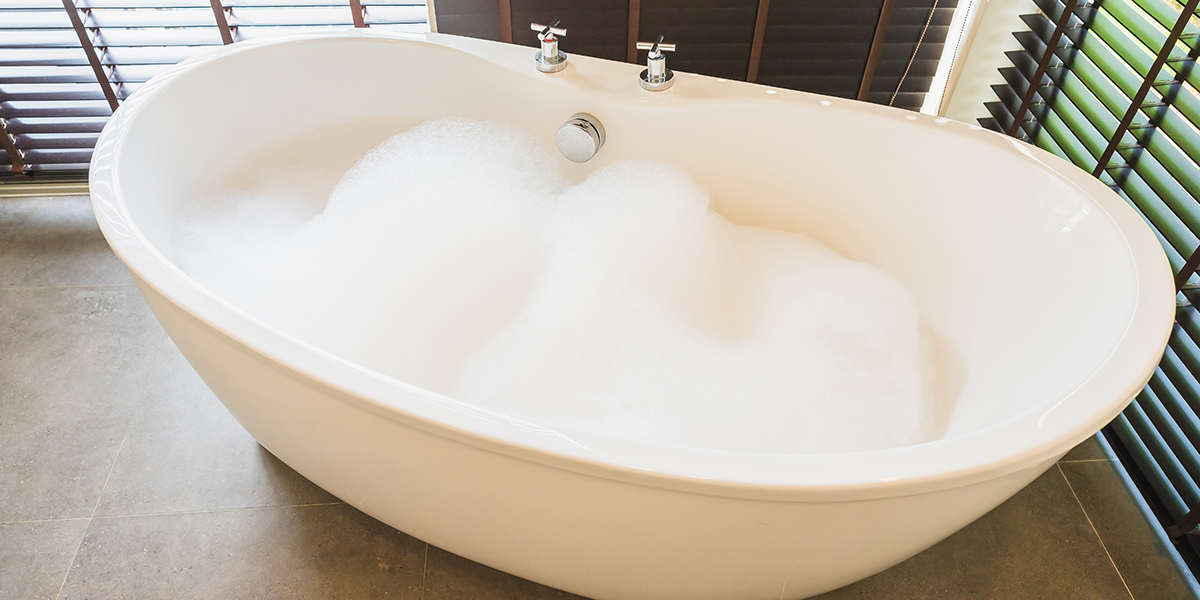My Definitive Answer: Waste Coming Up Through the Bathtub
My Definitive Answer: Waste Coming Up Through the Bathtub
Blog Article
Right here in the next paragraphs you can locate a good deal of outstanding additional info around Why is Sewage Backing Up Into My Bathtub?.

Sewer backup in the bathtub can be a distressing and unhygienic issue for any kind of house owner. Not just is it inconvenient, but it additionally positions severe health and wellness dangers and indicates underlying issues with the plumbing system. Comprehending why sewer is turning up through the bath tub is important for taking appropriate action to attend to the trouble successfully.
Intro to the Issue
Usual Reasons for Sewer Back-up
Obstructions in the Sewer Line
One of one of the most usual root causes of sewage back-up is an obstruction in the sewage system line. This can happen due to the buildup of particles, grease, or international things in the pipelines, protecting against proper circulation and triggering sewer to back up right into your tub.
Tree Root Breach
Tree origins seeking moisture and nutrients can infiltrate sewage system lines via small splits or joints. With time, these roots can grow and expand, triggering significant damage to the pipes and bring about sewer back-up concerns.
Comprehending the Issue
When sewer draws back up into the bath tub, it's a clear sign of a problem with the drain system. The wastewater that needs to be flowing away from your home is instead discovering its back into your home, which can result in substantial damages and health hazards.
Possible Reasons
Several variables can add to sewer backup in the bathtub. From clogs in the drain line to problems with the plumbing facilities, determining the origin is necessary for finding a solution.
Aging Facilities
Older homes may have outdated plumbing systems that are extra vulnerable to corrosion, fractures, and deterioration. As pipes age, they come to be more vulnerable to leakages and blockages, increasing the probability of sewage backup occurrences.
Heavy Rainfall or Flooding
During periods of heavy rainfall or flooding, the drain system might become overloaded with excess water, creating backups and overflows. This can lead to sewer supporting right into bathtubs and other fixtures inside the home.
Indications of Sewer Back-up
Foul Odors
Unpleasant smells rising from drains or components, especially in the bathroom, might suggest sewage backup concerns. These smells are frequently solid and consistent, signifying a problem that requires instant attention.
Slow Draining Fixtures
Tubs, sinks, and commodes that drain slowly or otherwise in any way could be experiencing sewer backup. If several fixtures are affected at the same time, it's likely that the issue originates from a typical factor, such as the major sewage system line.
Gurgling Sounds
Unusual gurgling or gurgling noises originating from drains when water is running in other places in your house are a measure of air trapped in the plumbing system. This air accumulation can arise from sewer backup and should be examined quickly.
Wellness Dangers Connected With Sewer Backup
Contamination of Water Supply
Sewage backup can pollute the water in your house, positioning a severe health risk to you and your household. Exposure to polluted water can result in intestinal concerns, skin infections, and various other health problems.
Mold Development
Moisture from sewer backup can create ideal problems for mold development in your home. Mold and mildew spores can aggravate respiratory system troubles and cause allergies in delicate individuals, making timely cleanup important.
Spread of Disease
Sewage has hazardous bacteria, viruses, and bloodsuckers that can trigger a series of conditions, including liver disease, cholera, and gastroenteritis. Entering contact with sewer or contaminated surfaces puts you in jeopardy of infection.
Tidying up After Sewage Backup
Disinfection Procedures
Thoroughly disinfect and sterilize affected locations after sewage backup to get rid of harmful bacteria and avoid mold and mildew growth. Use ideal cleaning items and safety gear to guarantee risk-free and efficient cleaning.
Reconstruction of Influenced Areas
Repair any kind of damage to flooring, walls, or fixtures brought on by sewer back-up. Depending on the degree of the damages, you might need to replace carpeting, drywall, or other materials to restore your home to its pre-loss condition.
Immediate Actions to Take
Shutting Off Water Supply
In case of sewage back-up, it's necessary to switch off the water to avoid more contamination and damage. Locate the primary water shutoff valve in your house and shut it off until the concern can be settled.
Calling a Specialist Plumber
Dealing with sewer backup is not a do it yourself job. Contact a licensed plumber with experience in dealing with sewage-related issues to assess the scenario and carry out needed fixings or clean-ups.
Preventing Contact with Infected Water
Until the sewer backup is resolved, avoid contact with polluted water to avoid the spread of germs and microorganisms. Use safety gear if you need to be in the damaged location and wash your hands completely afterward.
Safety nets
Normal Upkeep of Sewage System Lines
Schedule regular inspections and upkeep of your sewer lines to identify and resolve possible issues prior to they escalate into major troubles. This can consist of clearing out debris, evaluating for tree origin breach, and fixing any broken pipes.
Setting Up Backwater Shutoffs
Consider setting up bayou valves in your plumbing system to stop sewage from receding right into your home throughout durations of heavy rainfall or flooding. These valves automatically close when water starts backing up, safeguarding your home from contamination.
Correct Disposal of Home Waste
Prevent purging anything aside from toilet tissue and human waste down the commode to stop obstructions and obstructions in the drain line. Dispose of oil, oil, and various other house chemicals correctly to minimize the danger of plumbing issues.
Why is There Sewage Coming Up Through the Bathtub
Sewage in your bathtub is a major problem that can make you want to abandon the bathroom for good. You don’t have to. However, it is important to identify the source of the issue and take the necessary steps to resolve it in order to avoid any health risks and property damage. In this article, we will discuss what could be causing sewage to back up through your bathtub so you can take action quickly and effectively.
The Main Reason For Sewage Backup in The Bathtub
All the sinks and toilets in your home connect to different pipes that lead to the main sewer line. The sewer line then connects to the municipal sewer system. This connection works seamlessly on a daily basis, but there can sometimes be a problem with the main sewer line.
The most common cause of sewage backup is a clogged or blocked main sewer line. The main sewer line can be clogged due to the accumulation of debris, tree roots or grease buildup, or other materials. Another possible cause is a collapsed pipe. When this happens, your toilets and sinks won’t be able to drain properly. This is when sewage starts backing up through the bathtub. If the problem has been occurring for some time now, it might be time to consult with a plumber as there may be more severe damage that needs fixing.
How Can You Tell if it’s Coming From Your Sewer Line?
If you’re experiencing a sewage backup in your bathtub, then you can use a few simple methods to determine if it is coming from the main sewer line. First, try to unclog the tub drain with a plunger or an auger and see if that helps. If not, then inspect all of the drains in your house and check if there is any blockage in them. If some of the other drains are not working fine, then it’s likely the problem is with your main sewer line.
Common Signs of a Clogged Main Sewer Line
If you suspect that your main sewer line is blocked, then there are a few common signs to look out for. Frequent clogs in your home are a sure sign of a clogged sewer line. You can also check for slow drainage from all the plumbing fixtures.
Slow Drains
If you notice that it takes longer for your sinks and toilets to drain, then this could be a sign of a clogged main sewer line.
Frequent Clogs
Another common sign is that your drains or toilets become clogged almost all of the time. If this happens, then it could be a sign that the main sewer line is blocked.
Water Backup
Do you notice water or sewage coming back up from any of the drains in your home? If your answer is yes, you may have a clogged main sewer line.
Sinkholes
If you’ve noticed sinkholes in your yard or overflowing sewage from the ground, you may be facing a blocked sewer line issue.
Your Shower or Sink Makes Gurgling Noises
Have you noticed gurgling noises coming from your sink or shower lately? These are typically signs of a blocked sewer line and should be checked out immediately.
How to Prevent a Main Sewer Line Clog
Once you’ve identified that your main sewer line is clogged, it’s important to take steps to prevent it from happening again. The best way to do this is to avoid putting any solid material that can clog the drain, such as grease and other debris. You should also be mindful of what you flush down your toilet. In addition, you should schedule regular maintenance for your main sewer line. This will help keep it clear and free from clogs or backups.
What Should You do if You Notice Sewage Backing up Through The Bathtub?
If you’ve noticed sewage backing up through the bathtub, then it is important to call a professional plumber immediately. A plumber can inspect the situation and determine what the cause is, such as a blocked main sewer line. They will also be able to advise you on how best to fix the issue. In some cases, a simple drain cleaning may be all that is needed.
However, if the blockage is severe, then your plumber may need to use more advanced methods to clear the blockage.
No matter what, it is important to always call a professional plumber if you experience any kind of sewage backup. They will be able to assess the situation and provide you with a solution that is best for your home.
https://baylorinc.com/blog/why-is-there-sewage-coming-up-through-the-bathtub/

Do you enjoy reading about What To Do If Sewage Starts Backing Up Into the Shower? Try to leave a remark below. We'd be pleased to know your opinion about this entry. We are looking forward that you come back again soon. Sharing is nice. Helping people is fun. I praise you for being here. Come back soon.
Call Today
Report this page